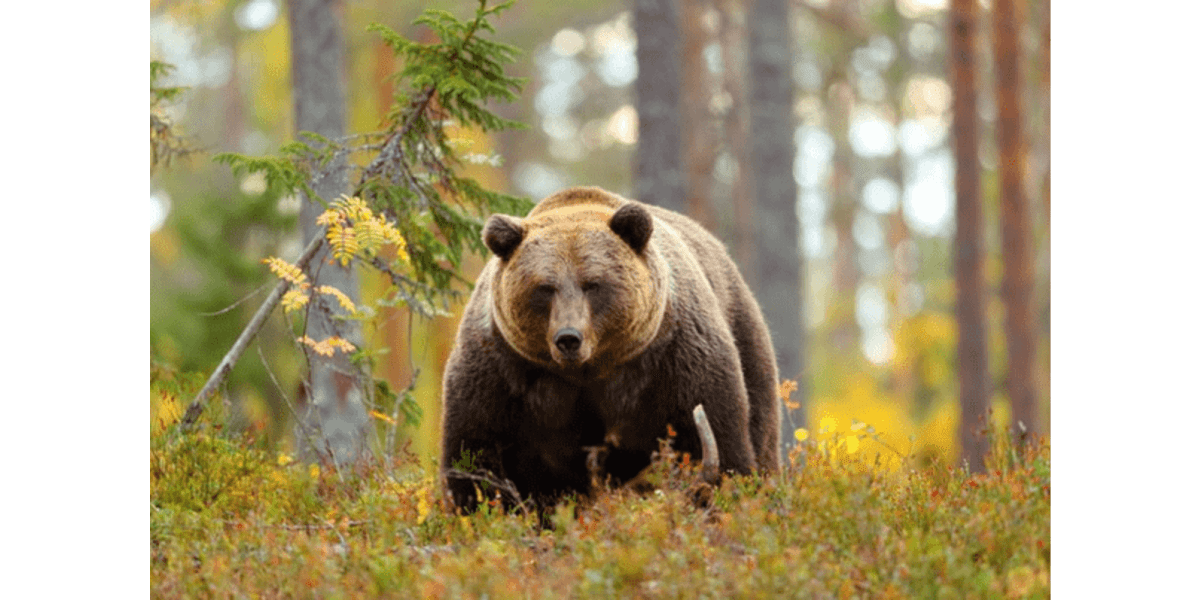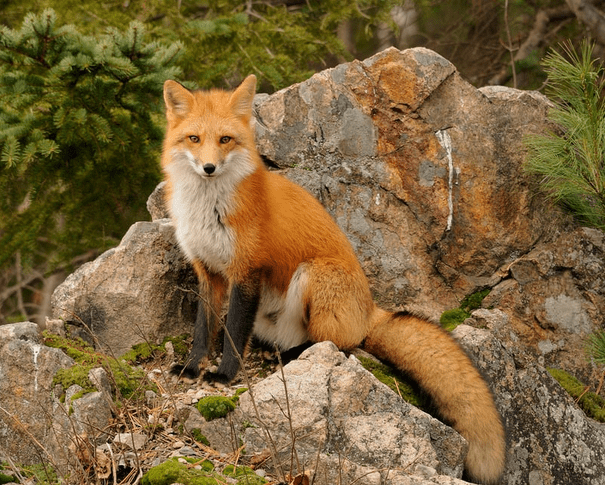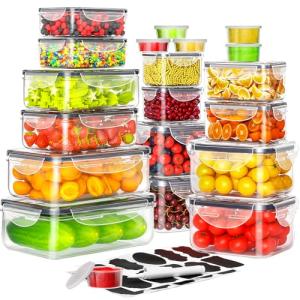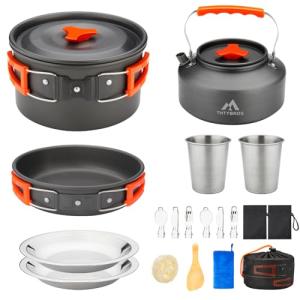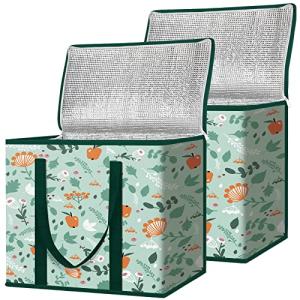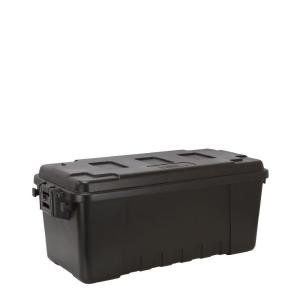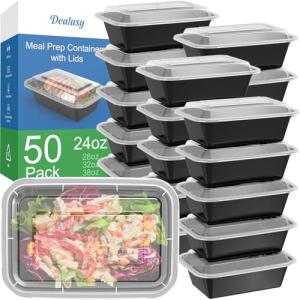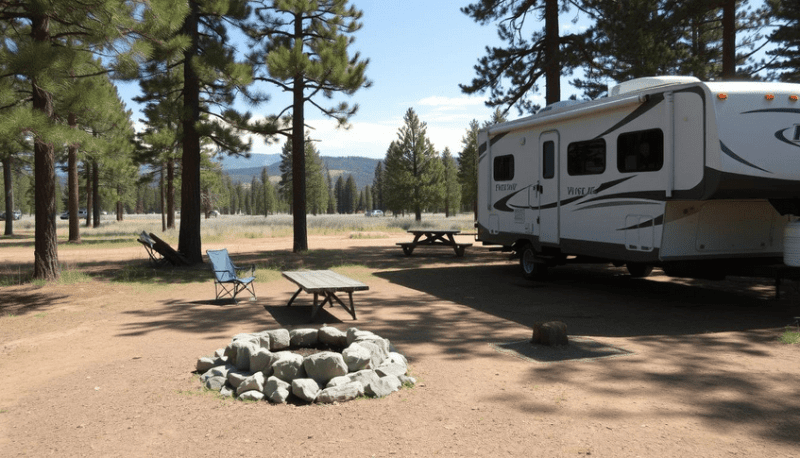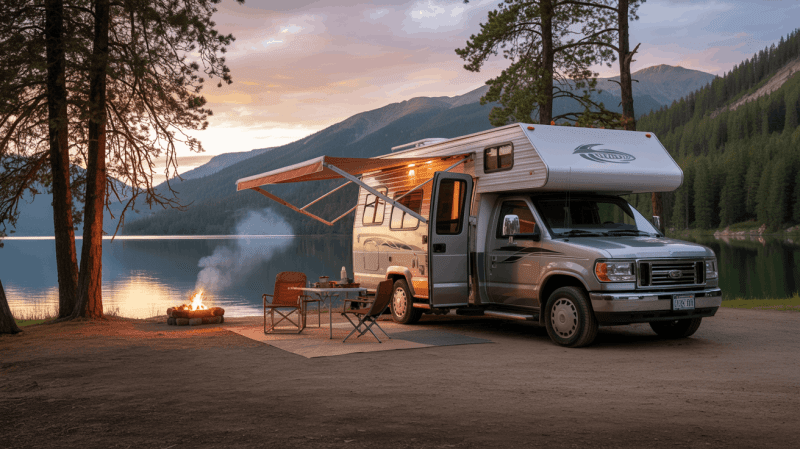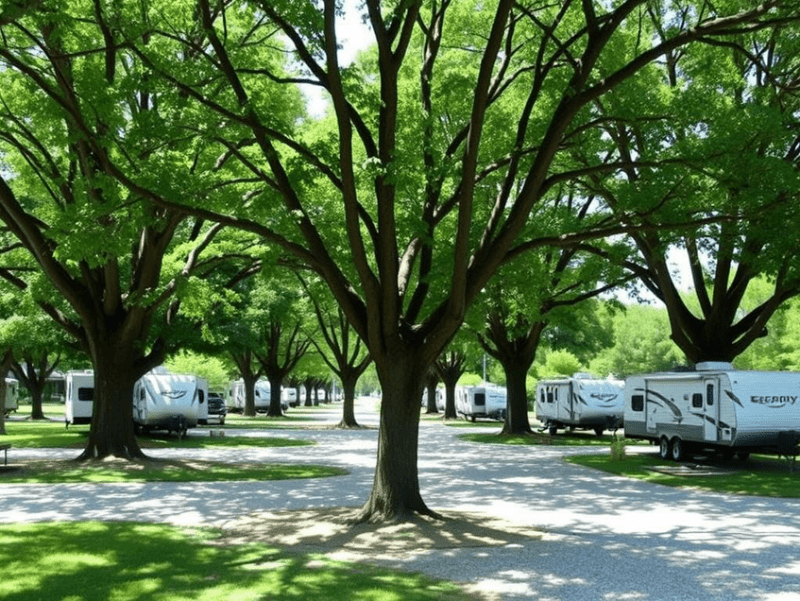Camping is a great way to enjoy nature, but it's important to store food safely to avoid attracting wildlife. We need to take steps to protect our supplies and keep animals away from our campsite. This helps keep both campers and wildlife safe.
Proper food storage while camping means using bear-resistant canisters, metal bear boxes, or securely locking food in vehicles when available. These methods keep food odors contained and make it hard for animals to access. It's best to never keep food in tents, as the scent can draw curious critters right to where we sleep.
We should always be aware of our food and other scented items, even during the day. It's smart to secure food when we're not actively eating or preparing meals. This includes snacks, trash, and toiletries that might smell tasty to animals. By following these simple rules, we can enjoy our camping trips without worrying about unwanted animal visitors.
Understanding Wildlife Behavior
Animals in the wild are driven by instinct and the need to find food. Their keen senses and learned behaviors often lead them to human campsites in search of an easy meal.
The Basics of Animal Attraction to Food
Wild animals have a powerful sense of smell. They can detect food odors from far away. Bears can smell food from over a mile away. Raccoons and rodents are also drawn to food scents. These animals remember where they've found food before. They may return to campsites again and again.
Food attracts wildlife in different ways:
- Strong smells (cooked meat, fish, sweets)
- Bright colors of food packaging
- Sounds of food preparation
- Garbage and food scraps
We must be careful with all food items, not just meals. Toothpaste, deodorant, and scented products can also lure animals.
Predatory Animals and Scavengers
Larger predators like bears and wolves pose the biggest risk to campers. They're always on the lookout for food. Scavengers such as raccoons and coyotes are also common camp visitors. These animals are smart and adaptable. They learn quickly how to get into improperly stored food.
Key behaviors to watch for:
- Bears: May become aggressive if surprised or if cubs are nearby
- Raccoons: Use their nimble paws to open containers
- Birds: Can swoop down and grab unattended food
- Rodents: Chew through packaging to access food
We need to be extra careful at dawn and dusk. Many animals are most active during these times. Proper food storage is crucial 24/7 to keep wildlife away from our campsites.
Importance of Storing Food Securely
Proper food storage is key when camping. It keeps us safe, protects wildlife, and preserves nature. Let's look at why it matters so much.
Safety for Campers
Storing food the right way keeps us safe from wild animals. Bears and other creatures have a strong sense of smell. They can detect food from far away. If we leave food out, it can attract them to our campsite. This puts us at risk of animal attacks.
We need to use special containers for our food. Bear canisters work well. They keep smells in and animals out. We should also avoid keeping food in our tents. It's best to store it away from where we sleep.
Proper storage also stops smaller pests. Mice and raccoons can be a big problem too. They can chew through bags and steal our food. This leaves us without enough to eat on our trip.
Protection of Wildlife
Good food storage helps keep wild animals wild. When animals find human food, they can get used to it. This changes how they act in nature. They might start to depend on campsites for food.
Bears that get human food often become "problem bears." Rangers might have to move or even kill these bears. That's bad for the bears and the forest.
We can help by using smell-proof bags and bear-resistant containers. Hanging food from trees works too in some places. These methods keep our food out of reach. Animals stay safe and keep their natural habits.
Preserving the Natural Environment
When we store food well, we help keep nature clean. Loose food attracts animals and can make a mess. Wrappers and leftover food pollute the area. This can harm plants and water sources.
Good storage means less trash in nature. We should pack out all our garbage. This keeps campsites and trails clean for others.
We also prevent animals from eating things they shouldn't. Human food isn't healthy for wild animals. It can make them sick or change what they normally eat. By storing food right, we help keep the ecosystem in balance.
Safe Food Storage Techniques
Keeping food secure while camping is vital for wildlife safety and preventing unwanted animal encounters. Proper storage protects both campers and local wildlife. We'll cover three key methods for safely storing food in the outdoors.
Using Bear Canisters
Bear canisters are hard-sided containers designed to keep food and scented items safe from wildlife. We recommend using them in areas with high bear activity. These canisters are tough and smell-proof. Most can hold several days of food for one person.
To use a bear canister: • Pack all food, trash, and scented items inside • Close it tightly • Place it 100 feet away from your campsite • Put it on flat ground, not near cliffs or water
Bear canisters work well for car camping and backpacking. They're often required in some parks and wilderness areas. Check local regulations before your trip.
Hanging Food Bags
Hanging food bags is a classic method for keeping supplies away from animals. This technique works well when bear canisters aren't available or required. It takes some practice to do right.
Steps for hanging a food bag:
- Find a sturdy tree branch 15-20 feet high
- Throw a rope over the branch
- Tie your food bag to one end
- Hoist it up at least 10 feet off the ground
- Secure the rope to another tree
Make sure the bag is 4 feet away from the tree trunk. This stops bears from reaching it. Always hang your bag before dark. Never leave food in your tent overnight.
40 Stackable Food Storage Containers with Lids
Perfect for keeping your camping meals organized and fresh while on the go
Product information
$27.99
Product Review Score
4.65 out of 5 stars
184 reviewsProduct links
17-Piece Camping Cookware Set for Outdoor Cooking
Everything you need for delicious meals under the stars
Product information
$39.99 $31.98
Product Review Score
4.29 out of 5 stars
91 reviewsProduct links
Vehicle Storage
Storing food in a vehicle is often the easiest option when car camping. It's a good choice in areas without strict bear regulations. But it's not foolproof - some clever bears can break into cars.
Tips for vehicle food storage: • Lock all doors and close windows • Cover food items so they're not visible • Don't leave any trash or wrappers in the car • Remove all scented items, even non-food ones
If possible, use a hard-sided vehicle instead of a soft-top. Never store food in truck beds or trailers. Always clean up any spills right away to remove food smells.
Creating a Food Storage Plan
A good food storage plan keeps your supplies safe and wildlife away. We'll cover key steps to take before and during your camping trip to protect your food.
Before Your Camping Trip
We need to start planning our food storage before we leave home. First, we should make a list of all the food we'll bring. This helps us pack the right storage containers.
We recommend using hard-sided containers like coolers or bear canisters. These are tough for animals to break into. We should also pack some rope to hang food bags if needed.
It's smart to bring extra zip-top bags and airtight containers. These keep smells contained. We can repackage our food into smaller portions. This makes it easier to store and reduces waste.
During Your Camping Trip
Once at our campsite, we must set up a proper food storage area. This should be at least 100 feet away from where we sleep and cook.
We should never leave food out when we're not using it. After meals, we need to clean up right away. We must wipe down all cooking gear and store it with our food.
At night, we should use bear-resistant containers or hang our food high in trees. If we're in bear country, we can use bear poles or lockers if provided.
Here's a quick checklist for daily food storage:
- Store all food and scented items
- Clean up cooking areas
- Dispose of trash properly
- Keep toiletries with food
- Check storage area regularly
By following these steps, we can keep our food safe and avoid unwanted wildlife visits.
Best Practices for Food Handling at Campsites
Proper food handling at campsites is key for wildlife safety and enjoyment of the outdoors. We'll cover important tips for cooking, reducing food smells, and managing waste while camping.
Cooking and Food Preparation
We always cook at least 200 feet away from our tents and sleeping areas. This keeps food smells away from where we rest. We use a camp stove instead of an open fire when possible. It's easier to control and clean up after.
We bring pre-measured ingredients in sealed containers. This cuts down on prep time and mess. We also pack no-cook meals for some days to reduce cooking odors.
We clean all cooking gear right after use. We use biodegradable soap and strain food bits from wash water. We dispose of this water at least 200 feet from our camp and any water sources.
Minimizing Food Odors
We store all food, trash, and scented items in airtight containers or bags. Bear canisters are best, but locked coolers or smell-proof bags work too. We never keep food or smelly items in our tents.
We change out of cooking clothes before bed. Food smells can stick to fabric and attract animals. We keep these clothes with our food storage, not in the tent.
We avoid strongly scented foods when possible. Things like tuna or bacon smell great to us, but even better to wildlife. Less smelly options are safer choices.
Waste Management
We follow the "pack it in, pack it out" rule. All trash comes back with us, including food scraps. We double-bag our garbage to lock in smells.
We use a designated trash bag and keep it with our food storage, away from our sleeping area. We never bury trash or food scraps. Animals can easily dig these up.
For longer trips, we might need to hang our trash with our food. We use the same bear bag or canister method as we do for our meals.
Frequently Asked Questions
Proper food storage is key to staying safe while camping in wildlife areas. Let's address some common questions about keeping food secure from animals.
What are the best practices for storing food in bear-prone areas while camping?
We recommend using bear-resistant canisters in bear country. These containers are tough and can fit in backpacks. Each camper should carry their own canister. This way, a group can pack enough food for several days.
Bear bags hung from trees can work too. But canisters are more reliable. They protect food from bears and smaller animals.
How can campers prevent wildlife from accessing their food?
Keep food at least 100 feet from your campsite. Never store food in tents. Use bear canisters or hang food high in trees.
Clean up all food scraps right after eating. Don't leave any trash out. Store scented items like toothpaste with your food.
Are there any effective 'hacks' for securing food when camping in the wild?
One useful method is the PCT hang. It involves hanging a bear bag between two trees. This makes it hard for bears to reach.
Another tip is to use odor-proof bags inside your food container. These help mask food smells that might attract animals.
What types of food storage containers are recommended for ultralight backpacking?
For ultralight trips, we suggest using bear-resistant bags. They're lighter than hard canisters but still offer protection.
Some brands make ultralight bear canisters. These are a good choice for areas where hard-sided containers are required.
How should one store food in a car to avoid attracting wildlife while camping?
It's best to avoid keeping food in cars if possible. Bears can break into vehicles if they smell food.
If you must store food in your car, keep it in airtight containers. Place these in the trunk or out of sight. Remove all food and trash from the car at night.
What methods are most effective for protecting food from raccoons and other small animals at campsites?
Use lockable coolers or containers. Raccoons are clever and can open simple latches.
Hang food bags from tree branches or poles. Make sure they're at least 10 feet high and 4 feet from the trunk.
Clean up all food scraps and store trash securely. Even small bits of food can attract animals.
DISCLAIMER
This document is provided for general information purposes only and should not be relied upon as providing legal advice, technical, or specific operational guidance to the reader, whether as to the practices described in the document or the applicable legal requirements and regulations. bestcampingdeals.com expressly disclaims any responsibility for liability arising from or related to the use or misuse of any information in this document.
